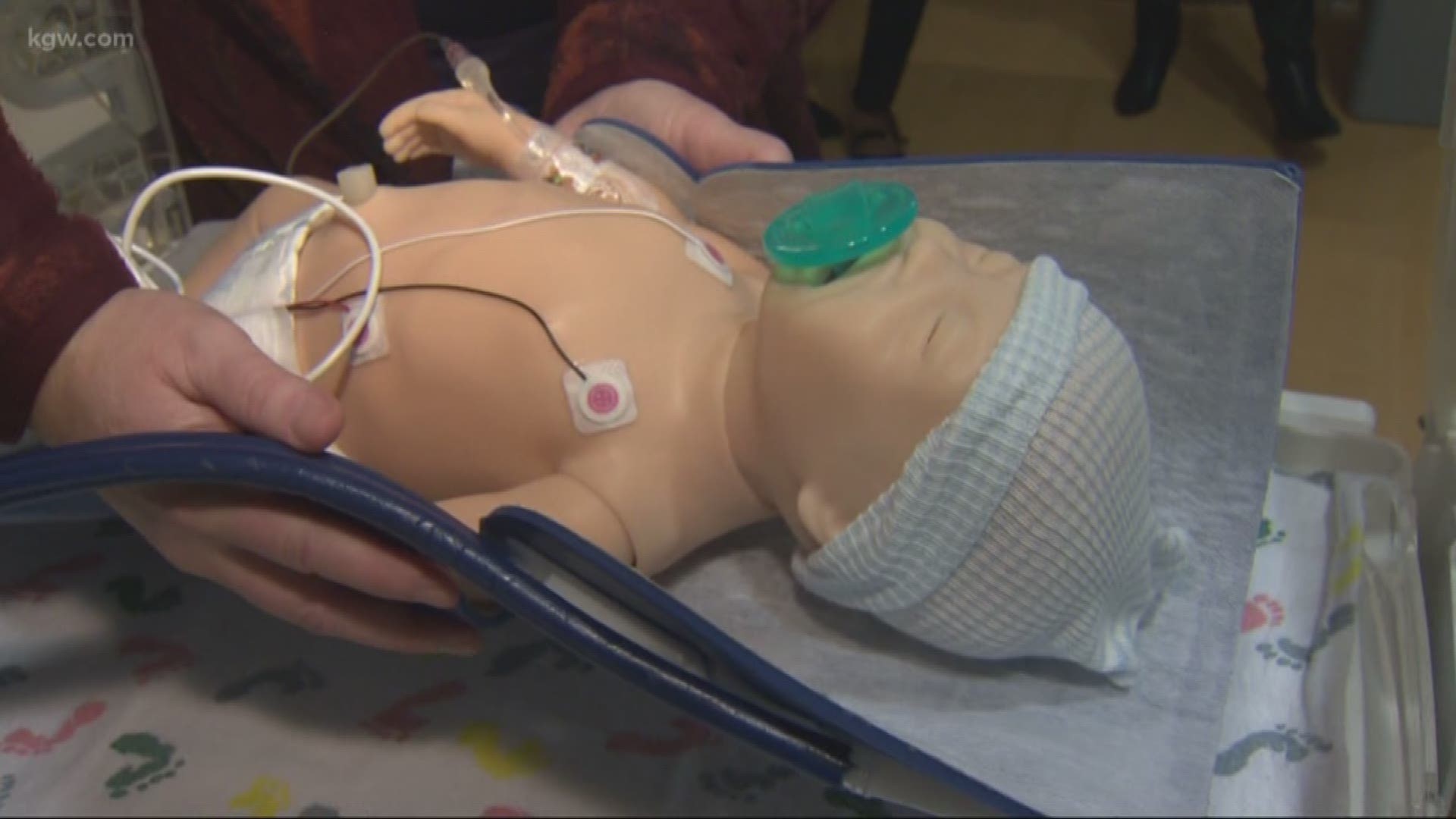PORTLAND, Ore. — Some very expensive new technology is saving the lives of more newborn babies at Legacy Emanuel's Randall Children's Hospital.
Starting with observation cameras over most neonatal incubators in the Neonatal Intensive Care Unit. A cellphone is now a connection to the heart for parents torn between their baby and a paycheck.
"Sometimes our babies are here 3-5 months, and eventually mom and dad have to go back to work. This gives them the ability to say 'I just need to see my baby right now'," explained Christy Brook, Randall NICU's assistant nurse manager.
Fifteen NicView cameras, costing $4,000 each, are giving piece of mind to moms and dads. When they can't be bedside, parents can log in anytime, and see nurses giving care and watch their newborn get better.
It's part of a wave of new thinking by doctors: incubators in the recovery rooms, parents learning hands-on care that nurses would have only done before, even on the tiniest, sickest patients.
"We know the connection the parent has to that baby. It affects the baby's brain and how that baby later thinks, is and how they're a human being," Brook said. "We don't see the attachment disorders, the things we see when you're not held and loved, we're not seeing that as much anymore."
If body warmth from a parent helps the psyche, science has shown, cold helps the organs.
"That's the Arctic Sun, our new cooling machine," Brook said, pointing to a large, rolling gray machine.
The machine pumps in cold water to a thin felt mat that's placed under the newborn baby within six hours of being born. Babies born without enough oxygen or blood, are at risk of seizures and permanent brain damage. When blood rushes to their brain to overcompensate, it overheats. These cooling blankets bring their body temperature down to a constant 92 degrees.
"We can actually wrap this around the baby and the mom can pick up the baby and hold the baby," said Brook of the mat.
As the baby lays shivering, it seems counter intuitive, but has to be done for three days. Randall sees 15-20 babies a year who need it.
"And these babies are having better outcomes, they're actually surviving."
At a cost of $45,000 per machine, Randall has three of them and relies on donations and fundraising to keep evolving. But it's been worth it.
"We're finding the balance between technology and humanity. It's an amazing time to be a NICU nurse right now," Brook said.

